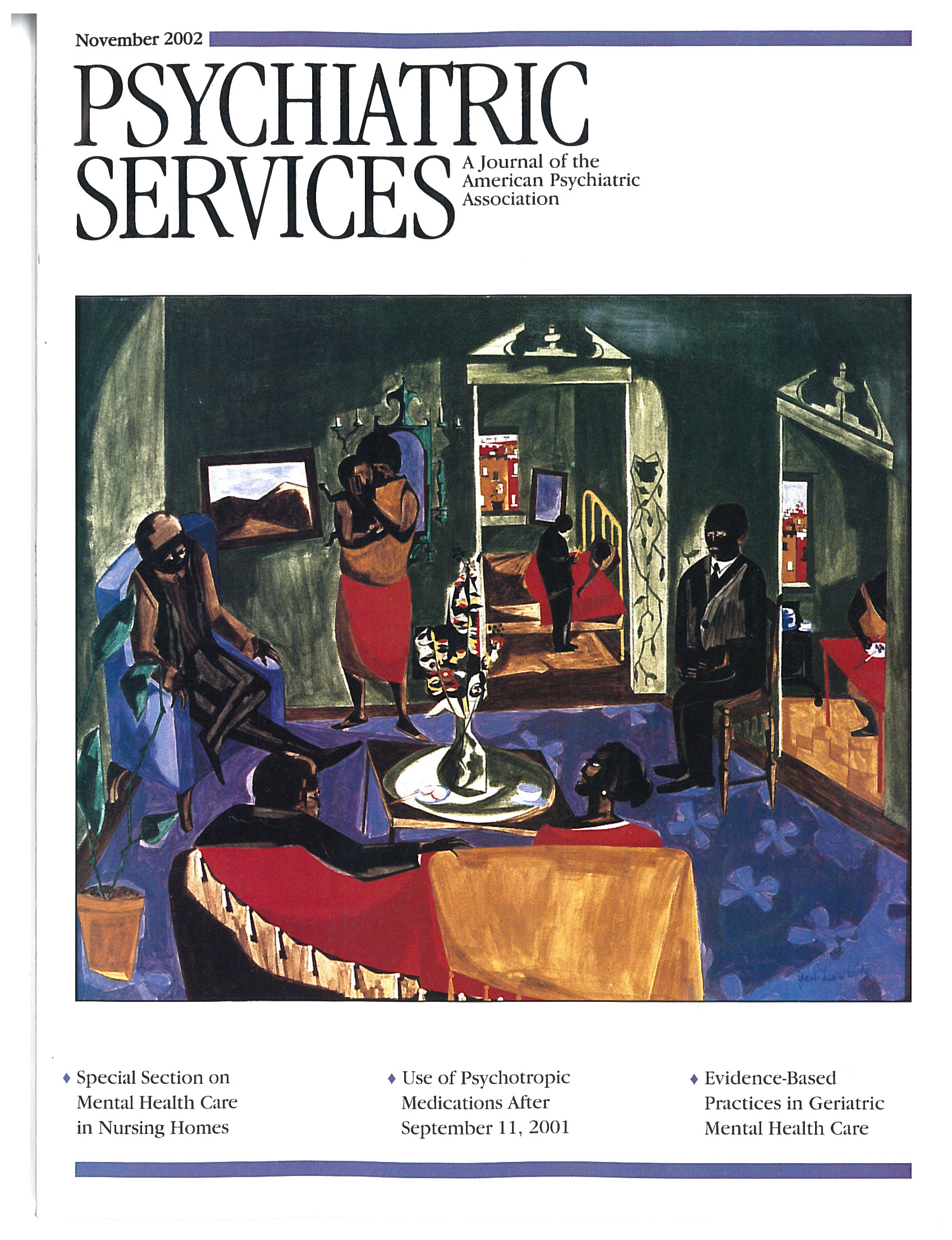Mental Health Services in Nursing Homes: Models of Mental Health Services in Nursing Homes: A Review of the Literature
Abstract
OBJECTIVE: The authors review the research literature on models and outcomes of extrinsic mental health services in nursing homes and summarize the data on current practices in this area. Extrinsic mental health services are those delivered in the nursing home by specialists who are not full-time staff of the nursing home. METHODS: English-language articles providing descriptive and research reports on models and outcomes of extrinsic mental health services in nursing homes were identified through a comprehensive search of peer-reviewed journals, using MEDLINE and psychological literature databases. The research methods of the reports were also noted. RESULTS: Three primary models of mental health service delivery were identified: psychiatrist-centered, nurse-centered, and multidisciplinary team models. Uncontrolled observational studies suggested that mental health services may result in improved clinical outcomes and less use of acute services. However, few well-designed controlled intervention studies have been conducted. Education and training appeared to improve staff members' knowledge and performance and to decrease turnover. The least effective model involoved traditional consultation-liaison service in which a lone clinician provided a one-time, written consultation on an as-needed basis. Multidisciplinary team approaches were favored as preferred service models. CONCLUSIONS: Few studies using an experimental design have examined the outcomes of mental health services in nursing homes. Program descriptions and uncontrolled outcome studies suggest that preferred practice includes the routine presence of qualified mental health clinicians in the nursing home, that optimal services are interdisciplinary and multidimensional, and that the most effective interventions blend innovative approaches to training and education with consultation and feedback on clinical practices.



